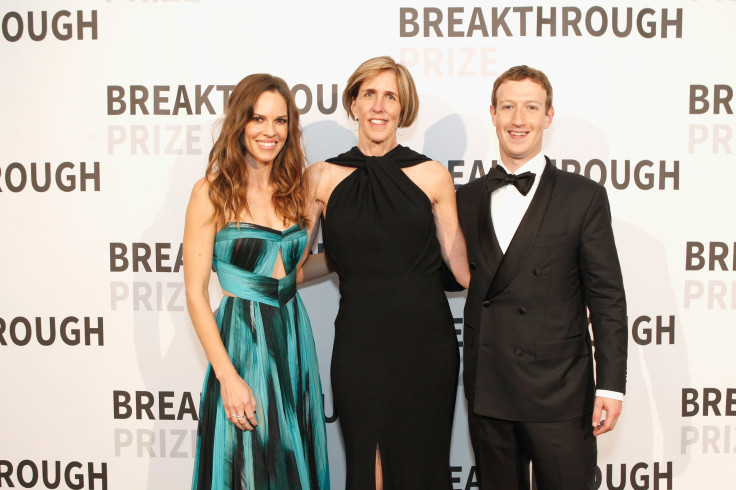Breakthrough Prize 2015: 'The Oscars Of Science' Award Millions To Outstanding Scientists

A total of over $21 million was handed out Sunday to physicists, mathematicians and researchers as part of Silicon Valley’s “Breakthrough Prize” initiative. The awards -- once referred to as “the Oscars of science”-- were given to one mathematician, five researchers in life sciences and a team of over 1,300 physicists in a star-studded ceremony at NASA’s Ames Research Center in Mountain View, California, late Sunday.
“Breakthrough Prize laureates are making fundamental discoveries about the universe, life and the mind,” Russian billionaire Yuri Milner, who co-founded the prize in 2012, said, in a statement. “These fields of investigation are advancing at an exponential pace, yet the biggest questions remain to be answered.”
The awards are also backed by Facebook’s Mark Zuckerberg and his wife, Priscilla Chan, Google’s Sergey Brin, Anne Wojcicki of 23andme, and Jack Ma of Alibaba.com and his wife, Cathy Zhang.
Each laureate -- individual or a team -- receives $3 million in prize money, which is nearly three times the sum a Nobel Prize winner receives. In the case of this year’s physics prize, the honor translates into more prestige than cash, as 1,370 physicists, along with seven team leaders, would be sharing a single $3 million award. The prize was awarded to five teams involved in “the fundamental discovery and exploration” of the neutrino -- the most abundant and perhaps the least understood subatomic particles in the universe.
“I would love to give $3 million to each one, but we're not there yet,” Milner, who recently shelled out $100 million to fund the search for alien life, told Reuters.
The Super-Kamiokande Collaboration -- led by Takaaki Kajita who won the Nobel Prize earlier this year for experiments that demonstrated neutrino oscillations -- was one of the recipients of the physics prize.
In the field of life sciences, the award went to Karl Deisseroth of Stanford University and Edward Boyden of the Massachusetts Institute of Technology for developing a procedure known as optogenetics (the programming of neurons so that they can be activated and deactivated using light), and scientists involved in the study of Alzheimer’s disease, gene variants linked to cholesterol, and ancient human DNA and genomes.
For mathematics, the prize was given to Ian Agol, a mathematician at the Institute for Advanced Study in Princeton, New Jersey, and the University of California at Berkeley, for his work in the esoteric field of geometric topology.
© Copyright IBTimes 2024. All rights reserved.





















